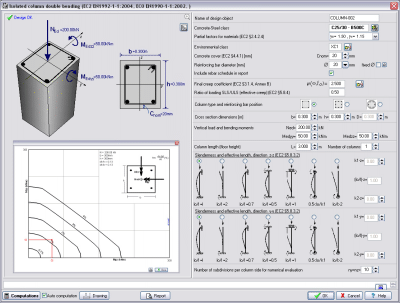

It should be obvious that when efforts are made to improve the economy of reinforced concrete structures, the major emphasis is on reducing formwork costs. In the United States, its costs run from one-third to two-thirds of the total cost of a reinforced concrete structure, with average values of about 50%.

In addition, falsework or shoring may be necessary to keep the forms in place for roofs, walls, floors, and similar structures until the concrete members gain sufficient strength to support themselves.

To use concrete successfully, the designer must be completely familiar with its weak points as well as its strong ones. A lower grade of skilled labor is required for erection as compared with other materials such as structural steel.ĭisadvantages of Reinforced Concrete as a Structural Material.In most areas, concrete takes advantage of inexpensive local materials (sand, gravel, and water) and requires relatively small amounts of cement and reinforcing steel, which may have to be shipped from other parts of the country.A special feature of concrete is its ability to be cast into an extraordinary variety of shapes from simple slabs, beams, and columns to great arches and shells.It is usually the only economical material available for footings, floor slabs, basement walls, piers, and similar applications.This can be explained by the fact that the strength of concrete does not decrease with time but actually increases over a very long period, measured in years, because of the lengthy process of the solidification of the cement paste. Under proper conditions, reinforced concrete structures can be used indefinitely without reduction of their loadcarrying abilities. As compared with other materials, it has a very long service life.Reinforced concrete structures are very rigid.

During fires of average intensity, members with a satisfactory cover of concrete over the reinforcing bars suffer only surface damage without failure. Reinforced concrete has great resistance to the actions of fire and water and, in fact, is the best structural material available for situations where water is present.It has considerable compressive strength per unit cost compared with most other materials.The tremendous success of this universal construction material can be understood quite easily if its numerous advantages are considered. It is used in one form or another for almost all structures, great or small-buildings, bridges, pavements, dams, retaining walls, tunnels, drainage and irrigation facilities, tanks, and so on. Reinforced concrete may be the most important material available for construction. Advantages of Reinforced Concrete as a Structural Material


 0 kommentar(er)
0 kommentar(er)
